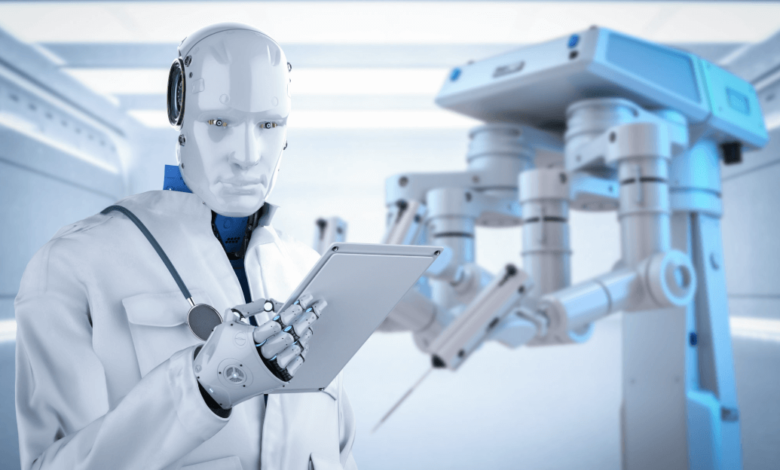AI’s Impact on the Future of Healthcare Robotics

AI’s integration into healthcare robotics marks a significant shift in medical practices. It enhances surgical precision and allows for minimally invasive procedures, which can lead to quicker patient recovery times. Furthermore, AI-driven diagnostics improve accuracy, aiding clinicians in making informed decisions. However, the implementation of these technologies raises important ethical and regulatory questions. Understanding these complexities is crucial as the healthcare landscape evolves. What implications will this have for patient care and safety?
The Role of AI in Surgical Robotics
As advancements in technology continue to reshape the medical field, the integration of artificial intelligence (AI) into surgical robotics has emerged as a pivotal development.
This synergy enhances robotic precision and promotes surgical automation, allowing for greater accuracy and efficiency in complex procedures.
The result is a transformative shift towards minimally invasive techniques, reducing recovery times and empowering both surgeons and patients in the surgical experience.
See also: How to Add and Edit Music Tracks in a Video Editor
Enhancing Diagnostics Through Ai-Driven Robotics
A growing body of evidence highlights the significant role that AI-driven robotics plays in enhancing diagnostics across various medical disciplines.
By integrating AI imaging techniques with predictive analytics, these technologies significantly improve the accuracy and speed of disease detection.
This advancement not only aids clinicians in decision-making but also fosters a more proactive approach to patient care, ultimately enhancing healthcare outcomes.
Improving Patient Interactions With Intelligent Machines
While the integration of intelligent machines into healthcare has often focused on clinical tasks, their impact on patient interactions is equally transformative.
Human-robot collaboration leverages emotional intelligence, enabling machines to assess and respond to patients’ emotional states. This fosters a supportive environment, enhancing patient engagement and satisfaction.
Ultimately, intelligent machines are redefining the dynamics of care, promoting a more personalized healthcare experience.
Challenges and Ethical Considerations in Healthcare Robotics
Although the potential of healthcare robotics is substantial, the field faces significant challenges and ethical dilemmas that warrant careful consideration.
Key issues include data privacy concerns, algorithm bias impacting treatment equity, and the necessity of obtaining patient consent.
Additionally, job displacement raises societal questions, while regulatory hurdles complicate implementation.
Finally, accountability issues create uncertainty regarding liability and responsibility in robotic-assisted healthcare settings.
Conclusion
In conclusion, the integration of AI in healthcare robotics promises profound precision, paving the path for pioneering practices. While the potential for enhanced diagnostics and improved patient interactions is substantial, stakeholders must scrutinize systemic safeguards to stave off ethical pitfalls. Balancing technological triumphs with thoughtful transparency is essential to foster trust and ensure that innovations serve all sectors of society equitably. Ultimately, a measured approach will maximize the benefits while mitigating the challenges inherent in this evolving landscape.





